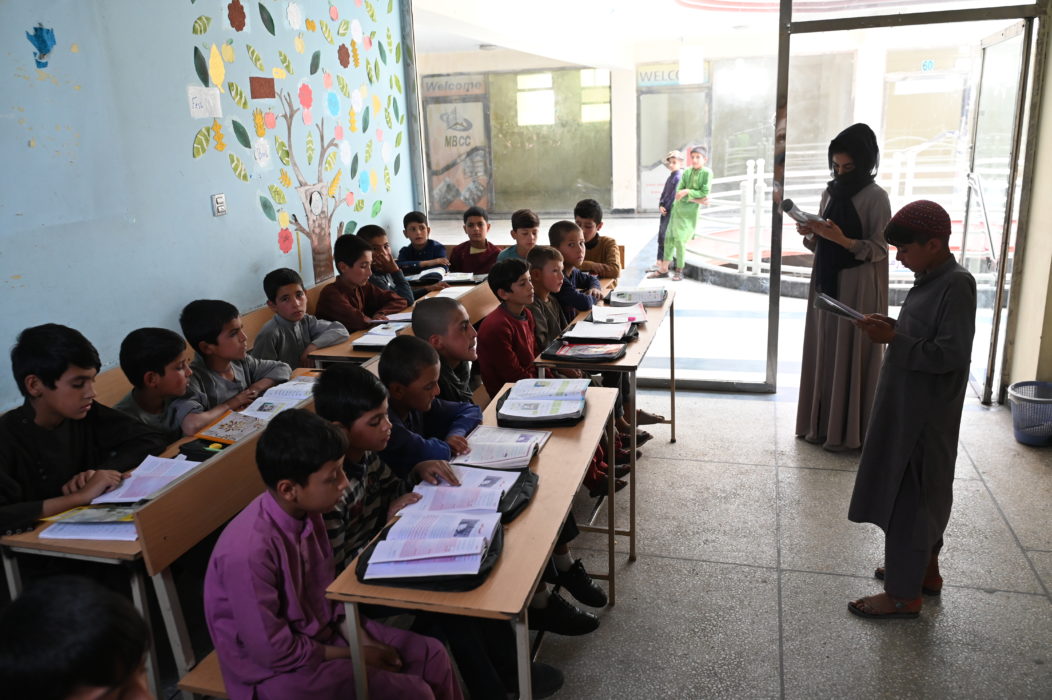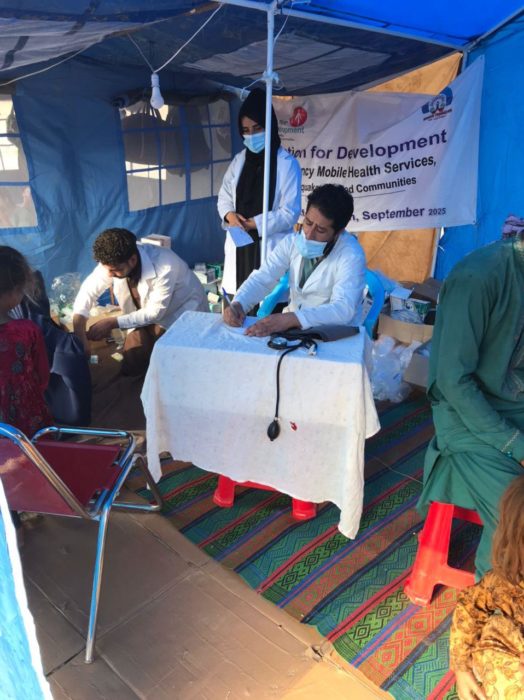WHO ARE WE?
Action for Development provides vital health and education services in Afghanistan to the most marginalized and vulnerable individuals. Our projects prioritize cost-effective, cascade-model approches fostering community participation and empowerment.
AfD implements initiatives aimed at strengthening midwifery capacity-building, providing education to street children as well as children with disabilities, while continuing to provide healthcare services through its Comprehensive Health Center and training for health professionals to enhance local capacities. In response to natural disasters, AfD also extends emergency aid, completing our long-term development projects.
OUR PROJECTS
Afghanistan At a glance
Where beauty and tradition meet poverty and injustice
Afghanistan is a country rich in natural beauty and millennial history. At the crossroads of ancient commercial routes,, it served as a center for economic and cultural exchange between empires.
However, decades of conflict have left the country devastated . Following the fall of the Taliban in 2001, a group of Afghan professionals founded Action for Development with the intention of assisting the local population in the reconstruction efforts
Between 2001 and 2020, Afghanistan made remarkable achievements; infant mortality dropped from 25% to 10%, the majority of Afghans gained access to basic healthcare, and although progress was gradual, the rights of women and girls were advancing, at the international level. Today, these progresses are under serious threat with women and girls, particularly in Afghanistan, facing growing challenges and in need of our support
Today, a staggering 97% of Afghans live below the national poverty line, an increase from 47% in 2020. Since the return of the Taliban, international donors have suspended most non-humanitarian funding and frozen billions of dollars in assets, severly impacting on the Afghan population. This has been further exacerbated by recurring droughts and other natural disasters.
83% of maternal deaths in Afghanistan could be prevented through access to healthcare and adequate medical training. However, the ban on women’s education has restricted access to essential healthcare, while increased poverty is straining the already overburdened public health system. The healthcare sector is now facing a critical shortage of skilled professionals, further compromising care.
70% of Afghan women aged 15 and above lack basic literacy skills, making Afghanistan one of the lowest ranked countries in female literacy.The current ban on education threatens to worsen this situation dramatically, with profound implications for the future of Afghan women and girls.
As increasingnumbers of Afghans migrate to urban areas search of better opportunities, approximately 73% of urban population now lives in slums, reflecting the growing socio-economic challenges faced by the country.
How is AfD responding to the current Humanitarian Crisis?
Despite the escalating humanitarian crisis, Action for Development remains committed to supporting Afghanistan’s most vulnerable populations through targeted field-based projects.
Our cascade-model approach to project management, combined with our continued presence on the ground enables us to respond to evolving challenges with sensitivity and continue delivering vital services.
OUR IMPACT
Individuals rely on the Comprehensive Health Center (CHC) for healthcare services.
Patients have received essential care through AfD initiatives.
Nutritious meals have been provided to children at school, supporting both their health and education.
LATEST STORIES
SUPPORT OUR DONATIONS CAMPAIGNS

Support Education for Marginalized Kabul Children
Donate Now
Training Midwives in Afghanistan
Donate Now




